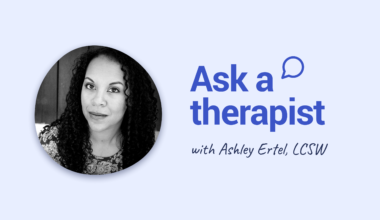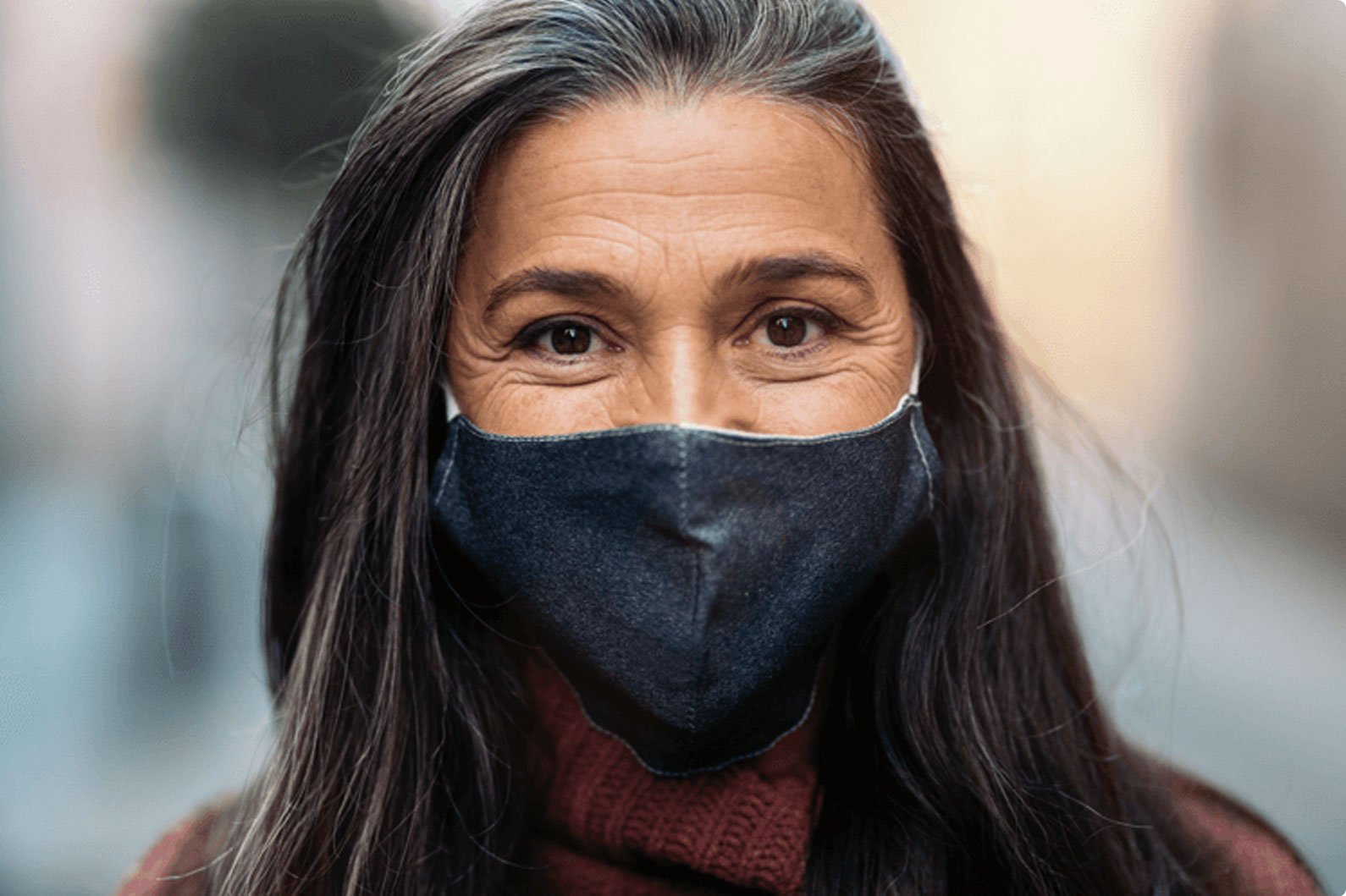Trigger Warning: Below we discuss some difficult and disturbing topics that can be triggering for some people. If you’re struggling, know that help is available. Don’t wait to reach out if you or someone you love is in a crisis and needs immediate support.
There’s no other way to put it: we live in scary times. Times where we’re inundated with news of what feels like weekly, or even daily, coverage about the next mass shooting. Often, this news involves the senseless, heartbreaking deaths of teachers and school-aged children, taken too soon, from a place that’s supposed to be safe.
These events are sparking understandable outrage and fear. For both parents, and the children we send off to school every day, the anxiety of a potential school shooting can cause near-paralyzing, constant thoughts of What if? What if the next one is my town, my school, my child?
First, know this: Your fear is founded. It’s a logical reaction to the horror we’re too regularly experiencing in America. The inexplicable wave of school shootings is changing how we see the very places we’re supposed to trust will help our children grow into adults. The places that are supposed to teach them the ways of the world. Educate them. Prepare them for becoming productive, kind, responsible citizens of society.
How do we go on after the psychological effects of mass shootings? How can we keep this fear from taking over? Unfortunately, there isn’t one simple answer or solution. What we can do, though, is learn how to take care of ourselves, and our children, in the best ways possible. Though processing each school shooting we hear about feels increasingly impossible, there are healthy ways you can start. The tips we’re providing here can help you cope with the terror so many parents and children are feeling, especially after the latest tragedy.
“Being able to hear what others are saying not only validates our concerns, but teaches us how to cope with some thoughts and feelings.”
Talkspace therapist Cynthia Catchings, LCSW-S. LCSWC, CFTP
7 Tips for Coping with Fear After a School Shooting
There are several things you can do to help manage the anxiety and fear you’re experiencing surrounding school shootings. The most important thing though is knowing when to get help.
If you’re dealing with anxiety, you might need professional intervention from a licensed therapist. Help is widely available and there’s no shame in asking for it. Try the following coping skills, but don’t be afraid to reach out if you need more.
Tip #1: Allow yourself to feel
It’s normal to have increased anxiety while processing disturbing, tragic news. Acknowledge and allow yourself to have those feelings. Avoiding what you’re feeling isn’t going to eliminate anxiety. Repressing emotions is a coping skill many of us use to get through difficult times, but it’s not the healthiest solution.
“Remind yourself that fear is a human emotion and you’re allowed to experience it, but also give yourself the opportunity to reflect on the possibility and the probability of an incident like this happening.”
Tip #2: Strengthen your mental health
When we’re going through something hard, it’s very common to put our mental health at the bottom of our priority list. In difficult times, especially after tragedies like the recent school shootings, do the best you can to prioritize the basics for your mental health. Care and preventative maintenance like sleep, daily movement, eating well, and drinking enough water can all help you strengthen your mental health foundation.
It’s also important to avoid things that may exacerbate your feelings of fear and anxiety. For example, monitoring your news consumption and social media and how it impacts your anxiety is crucial.
Tip #3: Talk with other parents and friends
When you connect with others, you can find safety and solidarity in how you collectively feel. Finding ways to cope often involves feeling validated in the emotions you’re experiencing. Talking with other people who understand you can do just that.
“Connect with your family, friends, or community. Sharing how you feel and getting validated can make a huge difference.”
Tip #4: Focus on positive talking and thinking
When anxiety spirals and threatens to take over your thought processes, using positive mantras and self-talk can be extremely effective for combating negative thinking.
Research done on the power of self-talk with athletes found that it can help improve their psychological state. Specifically, positive effects include improved self-confidence and reduced anxiety.
Ways you can use self-talk and the power of positivity to manage anxiety include:
- Keeping a gratitude journal
- Using positive affirmations
- Spending time with positive people
Tip #5: Doing something can help
For some people, feelings of vulnerability can be combated by channeling emotions into action. You might find solace by:
- Finding an organization to work with
- Volunteering with an outreach program
- Writing letters to congress and politicians demanding change
- Donating to a community program that helps school shooting survivors
Tip #6: Ask your school about safety measures
Information can be powerful. When you know the types of things your child’s school is doing (and has done) to prepare for the unimaginable, it might offer a sense of calm.
Not only can the information be reassuring, but it can also help you prepare to discuss things with your child (like intruder drills) if they come home with questions.
Tip #7: Know when you need professional help
Any anxiety you might be feeling after hearing news of a school shooting is likely perfectly warranted. It can even be healthy. That said, there’s a difference between good stress and bad stress. There comes a point when anxiety can be detrimental to your overall mental health and well-being.
“Worrying or feeling afraid is relatively normal, but if you find yourself over-worrying or obsessed with the negative thoughts or feelings, it may be time to look for a professional.”
If you feel like your emotions are unmanageable, or your stress is too extreme for you to function, reach out for help. Your doctor or a mental health professional can provide you with self-help tools, therapy, and even, in some cases, medication, so you can learn to deal with extreme anxiety and depression in a healthy manner.
4 Tips for Supporting Your Child’s Mental Health After a School Shooting
Tip #1: Reassure them
They have to go to school, so reminding children that their teachers, principals, and other school officials care about them and their safety is important.
Let your child know that the adults at their school will do everything in their power to keep them safe. This can be difficult, given the unprecedented prevalence of gun violence in schools today, but try to reinforce the idea that everyone has the same goal: to keep schools as safe as possible.
Tip #2: Help kids express their feelings
Kids are smart. They know what’s going on in the world around them. Don’t avoid difficult conversations because you’re uncomfortable. This can be a very scary and traumatizing time for kids and it’s important that you allow them the space to express themselves.
Some might have actually witnessed a shooting, or a friend or teacher was murdered. Let your children know that it’s ok to feel sad and offer ways they can work through those emotions. Modeling calm and openness as a parent is helpful in supporting your child in processing this grief and fear.
For more information on how to navigate these conversations, learn how to talk to your child about mass shootings in our guide.
Tip #3: Limit their exposure
Especially right after a tragedy, we’re exposed to near-constant coverage of the event, often for days and weeks on end. This exposure can be too much for kids who may already be worried or concerned about their own safety.
Consider keeping the news off, particularly later in the day and in the evenings before bed. Kids need time to decompress, to let their brain shut off. When violent images and heated discussions play out on TV, on the Internet, or even between adults in your home, it can be overwhelming.
Try to make a “safe time” where you can play games as a family, color, or watch a favorite program or movie. Even doing chores can help kids regain a sense of normalcy, which will be important as they come to terms with their feelings.
Tip #4: Know when they need professional help
While it’s perfectly normal (and can even be healthy) to have some fear and anxiety given recent events, there comes a point when a professional might need to intervene.
“Talking to a therapist can help you mitigate the negative emotions and find ways to feel better sooner. You don’t have to live in fear. Help is available and asking for it is the right thing to do.”
If you suspect or notice that your child’s fear is resulting in an inability to function in their daily life, it’s time to get them help. If they have anxiety that’s making it difficult for them to sleep normally, interact with peers and friends, or behave appropriately at school or at home, reach out to their pediatrician to discuss where you can get professional mental health help.
Finding Support
If you’re looking for support as you try to deal with the shock and horror of a recent school shooting, help is available, for both you and your child.
Support for parents
Parents are superheroes when it comes to protecting their children, but even superheroes need help from time to time. You can find support through:
- Seeking therapy
- Joining a support group
- Practicing self-care
- Joining or donating to an organization like:
- Safe and Sound Schools: A group created by members of the Sandy Hook community that’s now joined by school communities nationwide
- If you’re interested in focusing on legislative change, you can support organizations like:
- Moms Demand Action: A grassroots organization driving efforts to end gun violence
- Everytown: A gun safety organization that focuses efforts on legislative change and holding elected officials accountable
“Joining a support group can be a help if individual therapy isn’t enough or if you prefer to share and learn from others.”
Support for children
Children need support, reassurance, and hope that they’re safe and protected. You can help them by ensuring they have access to the following:
- Get them into in-person or online therapy
- Ensure counseling services are readily available at their school
- Keep their routine as stable as possible
- Avoid the news when possible
- Pay attention to their mood, sleeping patterns, and eating habits
- For older children, you might:
- Introduce them to an organization like Students Demand Action: A group of young activists who are committed to stopping gun violence
- Encourage them to promote safety protocols like “Secure Storage Resolutions”: Offers actionable steps children can use to demand school boards take action about safe gun storage
Gun violence in schools is inconceivable, yet somehow, it’s become a terrifying reality. You don’t have any guarantee that it won’t happen in your child’s school, but you do have control over how you manage the anxiety so many are feeling. Learning how you can cope, and helping your child cope, are the best things you can do.
Sources:
1. Walter N, Nikoleizig L, Alfermann D. Effects of Self-Talk Training on Competitive Anxiety, Self-Efficacy, Volitional Skills, and Performance: An Intervention Study with Junior Sub-Elite Athletes. Sports. 2019;7(6):148. doi:10.3390/sports7060148. https://www.ncbi.nlm.nih.gov/pmc/articles/PMC6628429/. Accessed May 30, 2022.
2. Get Involved. Safe and Sound Schools. https://www.safeandsoundschools.org/get-involved/. Accessed May 30, 2022.
3. Moms Demand Action For Gun Sense in America. Moms Demand Action. https://momsdemandaction.org/. Accessed May 30, 2022.
4. Everytown for Gun Safety. Everytown. https://www.everytown.org/. Accessed May 30, 2022.
5. Students Demand Action. Students Demand Action. https://studentsdemandaction.org/. Accessed May 30, 2022.
6. Urge Your School Board to Keep Schools Safe. Students Demand Action. https://studentsdemandaction.org/report/how-to-pass-a-secure-storage-resolution-at-your-school/. Accessed May 30, 2022.
Talkspace articles are written by experienced mental health-wellness contributors; they are grounded in scientific research and evidence-based practices. Articles are extensively reviewed by our team of clinical experts (therapists and psychiatrists of various specialties) to ensure content is accurate and on par with current industry standards.
Our goal at Talkspace is to provide the most up-to-date, valuable, and objective information on mental health-related topics in order to help readers make informed decisions.
Articles contain trusted third-party sources that are either directly linked to in the text or listed at the bottom to take readers directly to the source.





